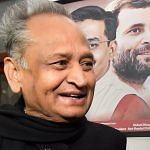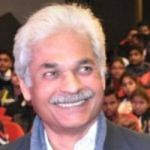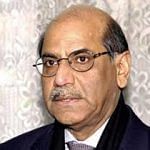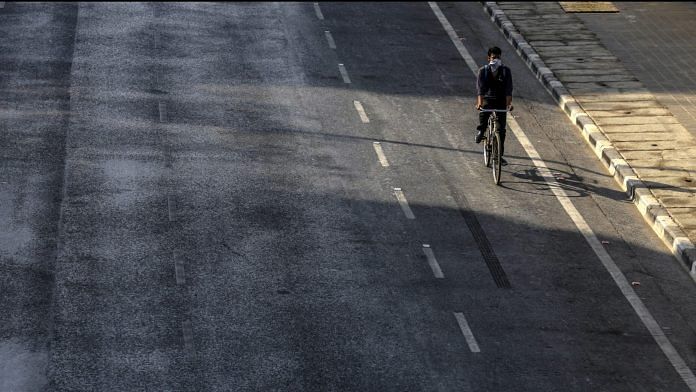 Listening as governance
Listening as governance
Amartya Sen | Nobel laureate in economics and Thomas W. Lamont University Professor and professor of economics and philosophy at Harvard University
The Indian Express
Sen explains the importance of public discussion and listening when a democracy, such as India, is faced with a social calamity. He says, “Overcoming a pandemic may look like fighting a war, but the real need is far from that.” He adds, “What is needed for dealing with a social calamity is participatory governance and alert public discussion.” Pointing out how every section of society deals with a pandemic differently and their worries vary, he says problems arise when, “A single-minded pursuit of slowing the spread of the disease does not discriminate between different paths that can be taken in that pursuit.” He ends by underscoring the emphasis on the act of listening by the central government. He adds, “Governance can be greatly helped by informed public discussion.”
 A script of action, responsibility and compassion
A script of action, responsibility and compassion
Ashok Gehlot | Chief Minister of Rajasthan
The Hindu
On Rajasthan’s “intense and proactive” Corona Containment Programme, Chief Minister Gehlot writes, “The treatment protocol followed by our experts at the (Jaipur SMS Medical College) had cured three Italian patients and many more with a track record of no mortality so far.” On Bhilwara, which has now become a case study on how to contain the virus after no new cases were reported from this coronavirus cluster in the past five days, he notes, “An uncompromising and firm approach towards lockdown of the district along with a specific structural standard operating procedure was worked out.” He also lays emphasis on the Triple-T method, i.e. ‘Tracing, Testing and Treatment’. Proposing a changed India post-pandemic, he says, “Let us not make the mistake of rising out of the COVID-19 crisis and then succumb to divisive politics.”
 Policing in the times of Covid-19
Policing in the times of Covid-19
Yashovardhan Azad | Former IPS officer and Central Information Commissioner
Hindustan Times
On policing amid a pandemic, Azad writes, “Train policemen to tackle medical emergencies; utilise RWAs; empower private security guards.” The police-population ratio (192 policemen per 100,000 people) has proven to be a hurdle to “the effectiveness and efficiency of the police force, and even causes psychological ailments for many,” he writes. Azad highlights three lessons for the future — police training schools should include medical emergency and police responses in their syllabus, fulfill the “acute need for private security guards to be trained and empowered” and Residents Welfare Association should take up responsibility like they have in Delhi and Gurgaon.
 India needs a new social compact
India needs a new social compact
Shyam Saran | Writer is a former Foreign Secretary of India and has served as Chairman of India’s National Security Advisory Board
Business Standard
Saran comments on the exodus of migrant workers due to the nationwide lockdown and argues that “a total lockdown does not take into account the existential reality of daily wage labour or contract labour, for whom no work may mean no food or shelter” and “this is what drove the thousands to defy curfew and literally start walking back to their village communities even hundreds of miles away”. He says, “The Covid-19 pandemic has brutally uncovered the hidden drivers of the Indian economy in which sharp inequalities of wealth and income are inherent; indeed they provide the grease which makes the wheels of economic activity, across regions and sectors, turn smoothly.”
 Covid haze in an Indian maze
Covid haze in an Indian maze
Pranjul Bhandari | Chief India economist, HSBC Securities and Capital Markets (India)
Business Standard
Bhandari writes out about how India’s challenges related to Covid-19 are unique. She argues that “India’s unique characteristics may lead to different outcomes, or at least raise uncertainty regarding the outcomes, making it a complicated job for policymakers.” She says India may have some advantages due to its climate but “high population density and low per capita income (taken as a proxy for the capacity of the public health system) can more than offset weather-related advantages”. She says while India imposed the lockdown quite early, “The large migration of labourers back to their villages since the lockdown was announced was counterproductive”. She warns, “The truth is that given so many cross-currents, it is hard to predict exactly how the virus proliferation will pan out in India. ”
 Unlocking India is a far bigger challenge than staying locked
Unlocking India is a far bigger challenge than staying locked
R. Jagannathan | Editorial director, ‘Swarajya’ magazine
Mint
Jagannathan comments on the opening of the lockdown. “There are two better alternatives: one is to restrict the lockdown to covid hotspots and ease it in lower-risk districts” and “the other is to relax the lockdown in phases, easing it sector by sector and geography by geography over an extended period of time that may last till the end of May or early June”, explains Jagannathan. He argues that “the logical way to decide which sectors to phase out of the lockdown would be to distinguish between those that can work with limited physical proximity and those that need social contact”. He suggests that “the focus must be on empowering people to protect themselves, rather than just preventing the spread of infections by keeping them endlessly at home or in the hope that the disease will vanish merely by physical distancing.”
 The privacy features that are built into Aarogya Setu
The privacy features that are built into Aarogya Setu
Rahul Matthan | Partner at Trilegal and also has a podcast by the name ‘Ex Machina’.
Mint
Matthan comments on the privacy features of Aarogya Setu app which was launched by the government to assist people with social distancing for coronavirus. The app’s “stated purpose—to identify everyone you might have contacted so that they can be tested if you contract covid-19—clearly has the potential to violate personal privacy”. He argues that “it incorporates the well-established privacy principles of use limitation, purpose limitation, data minimization, its retention and security incorporates the well-established privacy principles of use limitation, purpose limitation, data minimization, its retention and security”. He suggests that the app should be released as “open source code so that independent app developers could examine it and satisfy themselves with respect to how it works”.
Today’s Editorials
The Hindu: The daily welcomes PM Modi taking the views of the states into account to determine the way forward after the 21-day lockdown. The states must scale up testing as part of their exit strategy. Mass gatherings, long-distance travel and leisure activity would have to wait, writes Hindu.
The Indian Express: The present lockdown has revealed that technology cannot live up to the expectations generated because of differential access, comments Express. It is obvious that technology makes some things run smoother but it cannot replace old protocols completely.
Hindustan Times: The story of Rajasthan district Bhilwara’s turnaround from being a hotspot of coronavirus cases to no cases being reported for a week is remarkable, writes HT. The administration focused on a comprehensive approach — lockdown, screening, testing, isolation and treatment. Going local and deep is another lesson from this incident.
With inputs from Unnati Sharma



